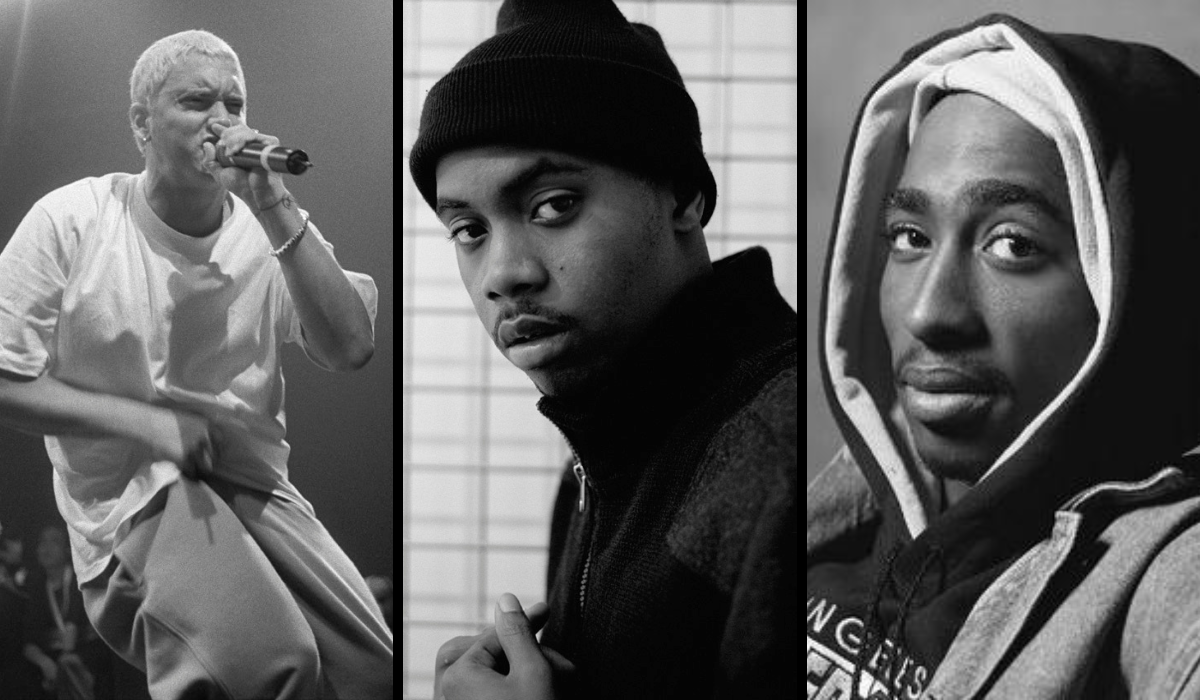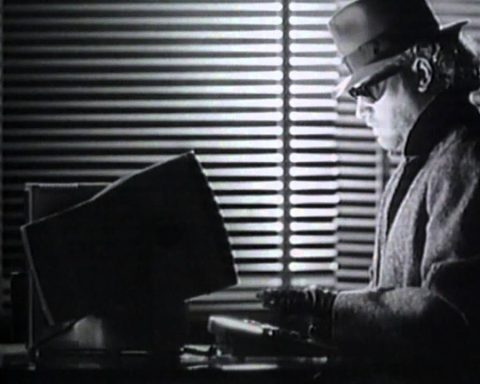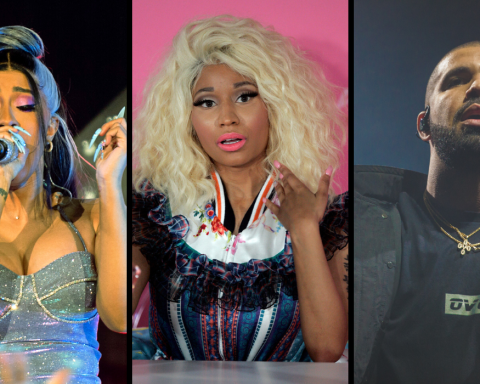This year marks the 50th birthday of hip-hop, the musical genre invented in parks and house parties in the Bronx Borough of New York City. Historians point to a back-to-school party on August 11, 1973, as the first hip-hop performance. And while the genre has enjoyed many iterations and subgenres, many fans consider the 1990s the sound’s golden era. During that decade, artists blended the music’s roots with innovations in style and approach. This playlist highlights ten of the decade’s most essential songs.
Playlist
Can I Kick It? by A Tribe Called Quest (1990)
A Tribe Called Quest is significant for its cerebral lyrics, synergistic frontmen Q-Tip and Phife Dawg, and the live instrumentation on its beats, some featuring legendary bassist Ron Carter. However, this song utilizes a sample from Lou Reed’s 1972 song, “Walk on the Wild Side.” From the group’s debut LP, People’s Instinctive Travels and the Paths of Rhythm, “Can I Kick It?” joins other hits on the record, like “I Left My Wallet in El Segundo” and “Bonita Applebum.” With a call-and-response titular chorus—often cited in subsequent rap songs—this is a favorite of hip-hop heads of all ages.
Brenda’s Got a Baby by Tupac Shakur (1991)
While he only lived to be 25 years old, Tupac Shakur (or 2Pac) remains one of the most influential voices in American music. Shakur was a one-person revolution combining unceasing passion with power, charm, and insight. The lyricist had a brief yet luminous career, espousing social justice, equality, and freedom. From his debut, 2Pacalypse Now, this song highlights his songwriting skill and penchant for street storytelling. Shakur tells the tale of a teenage mom and the hardships she faces.
Nuthin’ but a ‘G’ Thang by Dr. Dre (1992)
In the 1980s, Dr. Dre rose to fame with his Compton, California collective N.W.A. Still, he cemented his status with his 1992 LP, The Chronic. The record introduced a new, smooth rap voice: Snoop Doggy Dogg, who released his debut, Doggystyle, a year later. For many, The Chronic may be the finest rap album ever. The record, which earned a sequel from Dre in 1999, showcased the realities of life on the West Coast, from parties to police brutality. Along with the sticky hit “Nuthin’ but a ‘G’ Thang,” the record featured classics like “Let Me Ride.”
C.R.E.A.M. by Wu-Tang Clan (1993)
“C.R.E.A.M.,” which stands for “Cash Rules Everything Around Me,” celebrates the value of and hunt for cash. But while the song entertains, thanks to a catchy beat and inventive rhymes, it also demonstrates what makes Wu-Tang unique: the group’s distinct personas. Each played a role in its success—from gravely-voiced Method Man and producer RZA to MCs Raekwon, Ol’ Dirty Bastard, and Ghostface Killah. With its infectious vocal hook and gritty atmosphere, this track by the New York City collective remains canon.
N.Y. State of Mind by Nas (1994)
Illmatic by Nas is another oft-cited contender for the greatest rap record of all time. A stone-cold classic by the virtuosic Queens Bridge lyricist, the album boasted a cinematic scope. Its impressive sound came from several producers, including DJ Premier, Pete Rock, and Large Professor. This widescreen ode to the Big Apple stands out most for its hefty piano line and Nas’ genius rhymes. “N.Y. State of Mind” is hip-hop on the grandest of scales.
Runnin’ by the Pharcyde (1995)
In contrast to the well-known names on this list, the kaleidoscopic hip-hop group the Pharcyde represents the slightly more obscure side of the genre. The song “Runnin’,” produced by iconic beatmaker J Dilla, is about owning up to what’s in front of you and doing the job. “Can’t keep running away,” the track commands. Today “Runnin’” remains one of the supreme examples of the decades’ backpack or underground scene.
Ready or Not by the Fugees (1996)
While the Fugees were a trio, rapper Lauryn Hill was the straw that stirred the proverbial drink. The artist could sing with the best and rhyme circles around most MCs. Backed by Pras and Wyclef Jean, Hill and the Fugees were seemingly ubiquitous on the radio thanks to their 1996 album, The Score, from which this deft track was a highlight. Ready or not, here come the Fugees, it announces. Listeners couldn’t hide and didn’t want to. Bouncy and menacing, “Ready or Not” remains a critical piece of the ’90s musical landscape.
Mo Money Mo Problems by the Notorious B.I.G. (1997)
This song was a posthumous hit for Biggie Smalls, AKA the Notorious B.I.G, who, like Tupac, was murdered in the contentious and violent East Coast-West Coast rap wars. In addition, the track gave rap fans words of wisdom. Indeed, with considerable success comes significant worry and stress. Sadly, Biggie only released one album in his lifetime. Yet, he remains one of the most creative rhymers in the genre’s history. The artist was as inventive as he was imposing.
Hard Knock Life by Jay–Z (1998)
From Jay-Z’s 1998 album, Vol. 2… Hard Knock Life, this song sampled music from the stage show Annie. A quintessential earworm, “Hard Knock Life” is also raw, detailing the daily challenges Jay-Z observed. Perhaps more than any figure in rap history, Jay-Z exemplifies monetary success. Now a billionaire and half of a power couple with Beyoncé, he has it all, a far cry from the hard-knock life. Still, this track illustrates the early portion of a rags-to-riches story and remains crucial storytelling.
My Name Is by Eminem (1999)
While not Eminem’s most acclaimed song—the skilled lyricist boasts many excellent offerings—this track from his 1999 debut announced his arrival. Eminem would go on to change the game, bringing a pop sensibility to the genre along with a biting tongue. Backed by Dr. Dre, Eminem would later discover the likes of 50 Cent while expanding hip-hop’s mainstream presence. A new era was dawning, and Eminem was one of its torchbearers.






